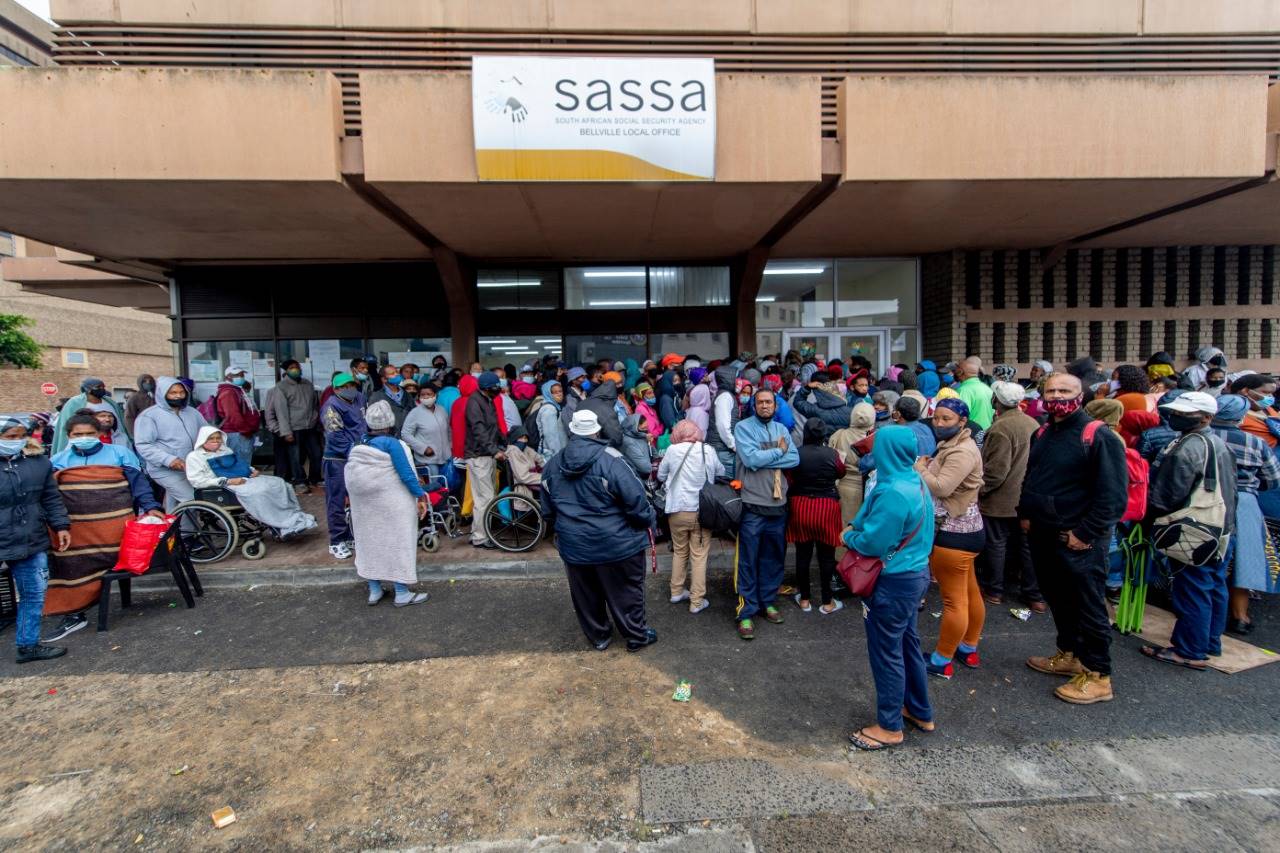Black Sash take dialogue on SASSA Grants to residents of Athlone

Black Sash in partnership with the Athlone District Advice Office hosted a community dialogue on Monday 30 October to relay the results of community-based monitoring (CBM).
The CBM was specifically focused on South African Social Security Agency (Sassa) payouts and processes at the Athlone and Gatesville post offices, retail outlets in the area and service at the Athlone Sassa service centre.
Black Sash regional manager Thandi Henkeman says monitoring started in March this year and will conclude next month (November) to accommodate the recent glitch.
She adds that this session was imperative to report back to the stakeholders on a community level, as results are also taken to Sassa on a national level to document what is working and not with an evidence-based approach.
Athlone Advice Office project director Brian Alcock says their involvement was the monitoring at these sites, reporting back to Black Sash for the way forward.
Several aspects were monitored including grant payments, dignity, safety and security, waiting times, transportation, application processes and access to the services.
In some of the results of concern, 9,5% of people spent more than R75 for travelling to collect their grants and 85,7% of people did not receive their grants in full at the post office pay points. Accessibility to dignity services such as toilet and shelter was another concern.
All respondents indicated the presence of private security and getting their payout within one hour of arriving at retail pay points. Queue times at the post office pay point varied with some stating a wait of more than six hours.
Residents in attendance were also given an opportunity to raise their concerns.
Sassa officials were joined by Ward 49 councillor, Rashid Adams and Faiez Jacobs, member of the provincial legislature (MPL).
Residents raised concerns about security staff performing official duty, having to travel to the offices as early as 02:00 to be helped, being turned away after waiting all day, waiting from 08:00 to 15:00 just to hand in of a form, re-applications for disability grants being too frequent at every six months, doctors not being compliant with letters for grant applications and overall staff attitude and conduct.
Another point raised was the amount of money provided to pensioners at R1 900.
“We are constantly doing monitoring around the breadline, what it costs to have electricity, shelter and food and the pension amount is well below that,” says Henkeman.
She adds that this is something the continue to monitor and address.
Another project they are advocating for is making the R350 Social Relief of Distress (SRD) grant more permanent, as unemployment is rife.
“As long as people do not have jobs, they must be getting that grant,” says Zoleka Ntuli, who heads up the Black Sash Basic Income Support project.
“This project targets unemployed persons between the ages of 18 to 59 who do not otherwise qualify for any other grant.”
In April, the organisation marched to parliament to deliver a petition signed by residents and organisations.
Ntuli says they had begun to see progress in this regard before Covid-19
Henkeman says the access to grants is not something unique to South Africa, but is the case in even first-world countries.
“It is the responsibility of the government to look after its citizens,” she says.
“It is the constitutional right of all to access social assistance.
“According to the Sassa Act, all who meet the requirements are entitled to receive a grant.”
The dialogue, held at the Calvyn Protestant Church in Kewtown, was followed by constitutional training this morning, Tuesday 31 October for organisations, schools and stakeholders.




